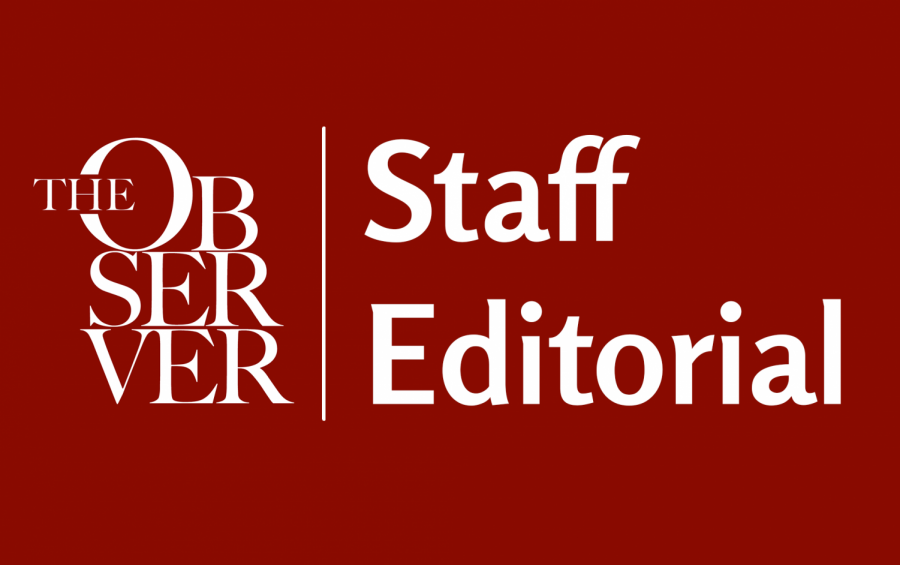Keeping the Campus Safe Should Be a Collective Effort
September 5, 2020
“To return, or not to return?” This was the question all Fordham students asked themselves when making the difficult decision about whether to come back to campus for the fall 2020 semester. With the coronavirus pandemic still sweeping the nation, heading to a college campus in the center of New York City certainly poses risks. The students who have chosen to reside on campus this fall have a duty to follow social distancing guidelines to keep themselves and their peers safe. The Fordham administration, through its policies and enforcement, has an obligation to ensure safety as well.
On June 30, Fordham announced its “Fordham Forward” plan detailing its goals and regulations for fall 2020. This plan, among other requirements, asks students to wear masks on campus, limit their contact with off-campus individuals and complete a daily COVID-19 symptom screening via VitalCheck. While these initiatives are all crucial forms of protection, they come nowhere near to fully protecting students from the dangers of the pandemic, especially when students don’t follow safety guidelines.
Students on social media — admittedly, ourselves included — were quick to condemn the Aug. 21 video of Rose Hill orientation leaders dancing to the “Cupid Shuffle.” The Observer later reported that the event was not only allowed but also mandated by Fordham. This event occurred only three days after a university-wide email informed students that failure to abide by New York City rules could result in their suspension.
What at first appeared to be evidence of socially starved students flouting COVID-19 safety precautions became an indication of a university playing fast and loose with its own distancing guidelines. Moreover, photos of crowded bars and large gatherings of students off-campus have since surfaced, suggesting that even if everyone was masked at that one on-campus event, some students ultimately have not sacrificed aspects of their social life in the name of public health.
If students behave like this at Lincoln Center, a much smaller and more densely packed campus, a COVID-19 outbreak seems inevitable. While both the students and the administration alike would have a share in the blame, the administration can only regulate so much beyond campus borders. Thus far, no footage similar to that of Rose Hill has emerged from Lincoln Center. It is our responsibility as students to account for both our actions and the actions of others, whether that is through discouraging unsafe activities or reporting them should they happen, or else sharing in the consequences.
Everyone on campus — from the person who cleans the Garden Lounge to any Lincoln Center or Rose Hill student to the Rev. Joseph M. McShane, S.J., himself — needs to follow the New York state laws and Fordham’s own guidelines. The administration should use its influence and resources to ensure that social distancing and mask-wearing is enforced and to develop competent and well-rounded protocols. Not only should they give directives, as they have in the Fordham Forward plan and the Ram Pledge, but they should also hold people responsible for their actions with real consequences for not following them, including restricting their access to social gatherings or asking them to leave campus altogether.
While the Lincoln Center administration enforces the rules of wearing masks and staying 6 feet apart, they should continue to curb large gatherings over 50 people — a policy that their Rose Hill counterparts have already discarded. We as students have the right to a safe campus environment and should hold the people in charge to the same standards they impose on us. If we see members of the community gathering in large groups or consistently not wearing masks, we must reach out to ensure the administration is being held accountable for carrying out its own policies.
We also must hold each other accountable, whether it’s something as simple as reminding a friend to wear a mask, speaking up when a policy is breached or offering hand sanitizer. The administration makes the rules, but we are the people who are attending classes and interacting with our peers. The greatest responsibility lies with us to protect ourselves and others so that everyone can return to New York City once again.
The prospect of an experimental fall semester was bound to present challenges to all of us as we attempted to return to campus life while maintaining appropriate social distancing boundaries and guidelines. The university’s current approach represents a respectable effort at keeping Fordham residents safe amid a pandemic.
However, it will not suffice to curb the spread of the coronavirus when put into practice on an urban college campus eager to congregate and reunite after months of quarantining around the globe. As students, it is our responsibility to call into question the policies that fall short of providing adequate protection to the college body and to hold each other accountable for our own behavior.










